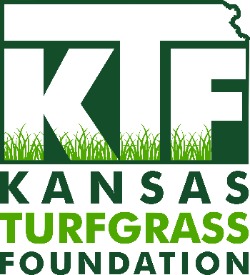Cultivation and Thatch Control
Cultivation
Turfgrass cultivation activities include hollow tine aerification, solid tine aerification, spiking, slicing, and water injection. These activities, to varying degrees, can reduce thatch, prepare turf for overseeding, and relieve soil compaction.
Hollow Tines
Self-powered hollow tine aerifiers (core aerifiers) insert hollow tines into the soil, removing a soil plug 1/4 to 3/4 inch in diameter and 2 to 12 inches in depth, depending on soil type, soil moisture, and type of machine. Core spacing will vary depending upon the make and model of the machine. In general, the more cores removed per square foot, the more effective the cultivation will be; removing 15 to 30 cores per square foot is recommended. Hollow tine aerification is the most efficient compaction reliever and should be done during active turf growth (Table 1).
Slicing, Spiking, and Solid Tine Aerification
Slicing, spiking, and solid tine aerification do not pull plugs of soil from the turf. Slicing aerifiers cut thin slits into the soil and spiking aerifiers cut thin, triangular-shaped holes in turf. While they do not relieve soil compaction as efficiently as hollow tine aerification, these practices cause less surface disruption and can be done anytime. Solid tine aerifiers insert solid round tines into the soil. Solid tine aerification can dramatically relieve soil compaction, but should be done during active turf growth (Table 1).
Water Injection Aerification
Water injection is the most recently introduced method of turf aerification. Water, under high pressure, is shot into the turf surface to relieve soil compaction. In addition, this method can be used to inject turf management chemicals into the soil. It causes no surface disruption and can be done anytime during the growing season. Unfortunately, this new technology is not commonly available for use outside of golf course applications (Table 1).
Table 1. A comparison of soil cultivation equipment
| Type of Aerifier | Depth (in.) | Tine/Blade Spacing (in.) | Relative Soil Loosening | Surface Disruption | Time of Cultivation |
|---|---|---|---|---|---|
| Hollow Tine | 2-12 | 1-8 | None - High | Moderate - Heavy | During Active Growth |
| Slice | 2-8 | 4-12 | None - Moderate | None | During Season |
| Spike | .25-2 | 1-2 | None | None | During Season |
| Solid Tine | 2-16 | 1-8 | None - High | Slight | During Active Growth |
| Water Injection | 4-20 | 3-6 | Slight - Moderate | None | Anytime |
Thatch
Thatch in turf is the layer of living and dead organic matter that occurs between the green vegetation and soil surface. It is composed primarily of turfgrass stems and roots containing large amounts of a waxy substance, lignin. Lignin commonly occurs in both above ground horizontal stems (stolons) and below ground horizontal stems (rhizomes). Thatch accumulates when it is produced faster than it is broken down; in highly maintained Kentucky bluegrass turf it is reported that more than 1/5 inch of thatch per year can accumulate.
Thatch forms between the green turfgrass shoots and soil surface. Use a soil probe or knife to remove a small plug of sod, digging shallowly into the soil. Thatch is medium to dark brown in color and resembles a woven, tangled mat, similar to compressed sphagnum peat moss. Sample several turf areas to determine an average thickness.
A thatch layer less than 1/2 inch thick (1/4 inch in some cold, heavy soils) should cause little concern. In fact, turf can benefit from a thin layer of thatch because it can insulate turf from rapid changes in soil temperature and moisture. Thatch also acts as a cushion, creating a safe surface for sports or playgrounds, while protecting turf and soil from traffic that can damage grass blades and compact soil. When thatch exceeds 1/2 inch in thickness a number of turf problems can develop.
Thatch Problems
Excessive thatch can create an unfavorable growth environment in several ways. First, excessive thatch creates a favorable environment for many turfgrass insect pests and diseases. Turf insect pests such as sod webworms and black cutworms often live in thick thatch. Several turf diseases, for instance summer patch or leaf spot, can cause greater problems in heavily thatched turf. Second, excessive thatch creates an unfavorable growth environment by reducing turfgrass cold, heat, and drought tolerance. Often, in thatchy areas, the majority of turf roots will grow in the thatch layer. Because this layer can change temperature and dry quickly, turf roots grow in an area that is colder, hotter, or drier than the underlying soil. This can result in poor root growth, which can lead to turf deterioration.
Randomly distributed dry spots can create another turf problem caused by excessive thatch. These dry spots can be difficult and expensive to properly irrigate. Furthermore, thatchy turf sometimes “puffs-up” when it dries during hot weather, making it prone to mower scalping and footprinting.
Finally, thatch can keep some pesticides from reaching their intended target, reducing pesticide performance. Certain turf insecticides (i.e., diazinon and chlorpyrifos) are especially prone to being tied up in thatch.
Thatch Development
A number of biological, cultural, and environmental factors can contribute to thatch production. Biologically, certain turfgrass species produce more thatch than others. Kentucky bluegrass and creeping red fescue spread by rhizomes, creeping bentgrass spreads by stolons, and zoysiagrass spreads by both stolons and rhizomes. These grasses can produce more thatch than perennial ryegrass or tall fescue which have bunch-type growth habits. Furthermore, it is the vigorously growing types within these species that produce the most thatch. For example, ‘Touchdown,’ a vigorous Kentucky bluegrass cultivar, will generally produce more thatch than the less vigorous ‘Park’.
Culturally, heavy nitrogen fertilization and irrigation can also contribute to thatch buildup because they cause turf to grow vigorously and produce more organic matter. Environmentally, thatch is normally broken down by soil-borne fungi and bacteria. Any soil condition that reduces the numbers of these organisms, e.g., a pH that is too acid or alkaline; heavy, wet soils; or the use of certain turf pesticides can slow the breakdown of thatch.
Contrary to popular notion, grass clippings contribute little to thatch buildup. Grass clippings are more than 80% water, and as they dry their weight and size are reduced greatly.
Preventing Thatch
It is easier, through proper establishment and cultural practices, to prevent thatch than to remove excessive thatch. When establishing turfgrass, select species or cultivars that are appropriate for the intended use, environment, and desired maintenance level. Select and establish turf species or cultivars that produce small quantities of thatch.
When existing turf produces large amounts of thatch, try to slow its production by altering present maintenance practices. Apply balanced fertilizers at rates and timing appropriate for the turfgrass being grown. Avoid excessive nitrogen application. Irrigate deeply and infrequently; avoid light, frequent watering.
Adjusting the soil pH to between 6.0 and 7.0 may allow soil bacteria and fungi populations to increase. Reducing the use of turf pesticides, especially fungicides and insecticides, can also increase microbe populations.
Dealing with Thatchy Turf
Several cultural activities can help to reduce the amount of thatch in turf. One method is to physically remove the thatch with a garden rake or with a mechanical dethatcher, vertical mower, or power rake. Hand raking may not adequately remove large amounts of thatch. Mechanical methods use a series of spinning vertical blades or spring teeth that can be positioned into the thatch, pulling thatch from the turf. NOTE - Use caution when the majority of turfgrass rooting is in thick thatch, as a great deal of live turf can be pulled out by a mechanical dethatcher, leaving only a small amount of healthy turf.
Another cultural activity that may reduce thatch is topdressing the turf. Topdressing adds a thin layer of compatible soil (1/8 to 1/2 inch) to the top of the turf. It is then raked, broomed, or dragged into the turf, making contact with the thatch. Microorganisms in the soil surrounding thatch will speed its breakdown.
An efficient method of thatch removal combines topdressing and core aerification. Allow the soil cores to air dry on the turf surface before crumbling and spreading them with a hand rake, a broom, or a section of weighted chain link fence that is dragged over them. Additionally, coring serves to mix soil into thatch which can also speed thatch breakdown.
Recently, several organic products have been marketed for thatch removal or reduction. Presently, the effectiveness of these products has not been studied at the University of Illinois. Any future test involving these materials will be made public upon its conclusion.
Timing Thatch Removal
The best time of the year to remove thatch, either by hand or mechanically, is when the turf is actively growing. Remove thatch in cool season grasses (Kentucky bluegrass, creeping red fescue, creeping bentgrass) in late summer/early fall or early spring. Late summer/early fall is preferred because weeds are more likely to invade a turf area and become a problem following an early spring dethatching. Late summer is also a good time to overseed cool season turfgrasses; overseeding can be combined with cultivation activities during that time. Remove thatch from zoysiagrass during late spring/early summer during active growth.



